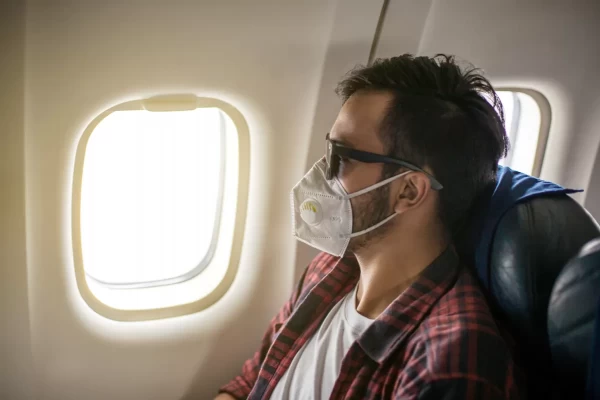Flight Anxiety and How To Get Over It

Nervous jitters, while you’re 14,000 ft. above the ground, are probably something most of us have experienced. Whether it is your first ever flight, or you have an intense fear of heights, not being comfortable in a plane comes to everyone more often than we think. It is human behavior of fearing things we can’t control, and a habit of panicking when we are in fear. Anything that is meant to run in matters of trust, brings panic.
But these feelings are something one can easily overcome. Flights can be fun too! Nervousness and anxiety are born out of subjective feelings that one holds as a result of something else. Maybe the take-off and landing parts freak you out. Maybe it is claustrophobia (fear of small and/or closed spaces) or aerophobia (fear of flying) that is building up to all of these anxious feelings that are holding your breath while you’re sitting on the airplane seat and the plane slowly takes off away from the ground.
One of the most important parts of getting over your flight anxiety is knowing exactly what it is that you are scared of. Recognizing what particular part about the entire flying experience is making you anxious. By doing so, you will also recognize how you can get over it. Anxiety is a bundle of emotions that comes out of fear of something that is not really there. These unwanted series of fear can rise from one particular ‘real’ fear.
For instance, if you have claustrophobia, any close spaces scare you. An airplane is a closed space way above the ground. Now the lack of control to get out of this particular closed space must be giving you anxiety and is stressing you out. Or, you have aerophobia and just the thought of flying on a plane gives you anxiety. These fear, anxiousness, and worry are completely valid here. Now that you can point out what it is that is freaking you out, you can push yourself logically into knowing why are you feeling this way.
First things first, do your research before getting on a plane. Our human behavior entails us being in control of things that are connected to us in some ways. And being in control, here, means knowing what you’re getting into. Research about airplanes and how they work. Read about what kind of training a pilot has to do before flying a plane. It is a whole world of security once you find out how a pilot is trained and what load of expertise it is taking to fly this plane. Knowing what is happening will help you feel secure that you’re in good hands here. It is more than natural to panic about what you can’t control, but it is also the smart choice to reassure yourself with more knowledge.
Another thing you can do is this popular anxiety exercise called ‘release and replace’. As the name suggests, release what is making you anxious and replace it with what does not make you anxious. It might just seem like too simple to help you overcome what you’re feeling, but trust me. We feel what we make ourselves feel. Your mind and body will be guided to feeling calmer as this habit of releasing your anxiety and replacing it with a comforting and calming feeling will settle in.
There is risk everywhere, it is no wonder that there is risk in flying too. But it is about the chances and how rare the risk really is. It is about reassurance that whatever risk you are fearing will be okay. It's the same with flights. So might as well enjoy the breathtaking moment of being in the air, away from the city crowds, and being able to look at a view the ground could never give you.
